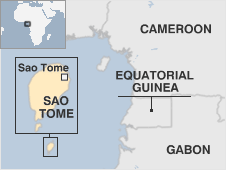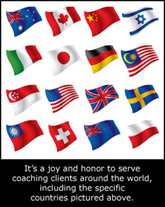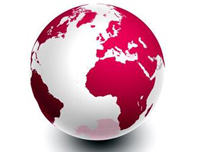 Country profile: Sao Tome and Principe
Country profile: Sao Tome and Principe

Sao Tom e Principe : Simple Life, Medicinal Plants
confirms the irresistible invitation to discover what the waters and forests of the country have yet to reveal. It is an African country, but with very different traits from the other nations of that continent.
Though still in the list of underdeveloped countries, health is no shortage in the country to the
World Health Organization (WHO).
Sao Tome and Principe, once a leading cocoa producer, is poised to profit from the commercial exploitation of large offshore reserves of oil.
But arguments have arisen over how to spend the expected windfall, leading to political tension.

Overview
One of Africa's smallest countries, Sao Tome and Principe consists of two islands of volcanic origin and a number of smaller islets.
 |
AT-A-GLANCE
Politics: President de Menezes was re-elected in July 2006. Power is constitutionally split between president and prime minister, which has led to several cohabitation governments
Economy: Sao Tome hopes to reduce dependence on donors and cocoa exports by exploiting offshore oil. The award of exploration contracts has been controversial
International: Sao Tome and Nigeria share offshore oil fields which have yet to be exploited. Nigeria intervened to prevent a coup in 2003
|
From the late 1400s Portugal began settling convicts on Sao Tome and establishing sugar plantations with the help of slaves from the mainland. The island was also important in the transshipment of slaves.
The colony's aspirations for independence were recognised after the 1974 coup in Portugal and at first the Movement for the Liberation of Sao Tome and Principe was the country's sole political party. However, the 1990 constitution created a multi-party democracy. The island of Principe assumed autonomy in 1995.
Sao Tome and Principe is trying to shake off its dependence on the cocoa crop. Falls in production and prices left the island state heavily reliant on foreign aid. The government has been encouraging economic diversification and is set to exploit the billions of barrels of oil which are thought to lie off the country's coast.
Drilling is under way and commercial production is expected to begin within a few years.
Promoters of tourism say the islands have plenty for visitors to see. But hurdles include ignorance about the country, the difficulties of getting there, and what some say is an exaggerated fear of malaria.
Facts
- Full name: The Democratic Republic of Sao Tome and Principe
- Population: 163,000 (UN, 2009)
- Capital: Sao Tome
- Area: 1,001 sq km (386 sq miles)
- Major language: Portuguese
- Major religion: Christianity
- Life expectancy: 64 years (men), 67 years (women) (UN)
- Monetary unit: 1 dobra = 100 centimos
- Main exports: Cocoa
- GNI per capita: US $1,020 (World Bank, 2008)
- Internet domain: .st
- International dialling code: +239
Leaders
President: Fradique de Menezes

Children in São Tomé and Príncipe.
|
Fradique de Menezes, a wealthy cocoa exporter, was elected in July 2001 and re-elected in 2006.
A week-long military coup in July 2003 toppled his government, while the president was on a private visit to Nigeria. Mr De Menezes returned to Sao Tome after an agreement to restore democratic rule was reached with the coup leaders.
He is the son of a Portuguese father and Sao Tomean mother and had dual citizenship before dropping his Portuguese citizenship so that he could qualify as a presidential candidate.
The president wants revenues from new offshore oil fields to be used to improve public services. He is keen to reduce Sao Tome's isolation and favours stronger ties with West Africa.
Mr De Menezes is the country's third president, after Miguel Trovoada, who served two five-year terms, the maximum permitted by the constitution (1990-2001) and Pinto da Costa (1975-1991).
He studied in Portugal and Belgium and occupied several political and diplomatic positions, including foreign minister and ambassador in Europe.
The president's governing MDFM-PCD coalition failed to secure an absolute parliamentary majority in the 2006 elections.
In February 2008 it entered a power-sharing deal with the opposition Independent Democratic Action (ADI) party, whose leader, Patrice Trovoada, became prime minister.
The coalition government lasted only three months before it fell after losing a parliamentary vote of confidence tabled by the opposition.
It was replaced by coalition headed by Rafael Branco, leader of the second-largest party in parliament, the Movement for the Liberation of São Tomé (MLST).
Media
Freedom of expression, guaranteed by the constitution, is also respected in practice. There are three privately-owned newspapers and one which is state-run.
While the state controls a press agency and the only radio and television stations, no law forbids private broadcasting.
Opposition parties receive free airtime and newsletters, and pamphlets criticising the government circulate freely.
The press
Television
- Televisao Saotomense (TVS) - state-run national broadcaster
Radio
AFRICA | ASIA-PACIFIC | AMERICAS | EUROPE | MIDDLEEAST | SOUTHASIA



Mauritania Mauritius Morocco Mozambique Namibia Niger Nigeria Republic-of-congo Rwanda Sao-tome-and-principe Senegal Seychelles Sierra-leone Somalia South-africa Sudan Swaziland Tanzania The-gambia Togo Tunisia Uganda Australia Brunei Burma Cambodia China East-timor Fiji Indonesia Japan Kazakhstan Kiribati Kyrgyzstan Laos Malaysia Marshall-islands Micronesia Mongolia Nauru New-zealand North-korea Palau Papua-new-guinea Samoa Singapore Solomon-islands South-korea Taiwan Tajikistan Thailand The-philippines Tonga Turkmenistan Tuvalu Uzbekistan Vanuatu Vietnam Antigua-and-barbuda Belize Bolivia Brazil Canada Chile Colombia Costa-rica Cuba Dominica Dominican-republic Ecuador El-salvador Grenada Guatemala Guyana Haiti Honduras Jamaica Mexico Nicaragua St-kitts-and-nevis St-lucia Suriname Trinidad-and-tobago Uruguay Venezuela Albania Andorra Armenia Austria Azerbaijan Belarus Belgium Bosnia-hercegovina Bulgaria Croatia Cyprus Czech-republic Denmark Estonia Finland France Georgia Germany Greece Hungary Iceland Ireland Italy Latvia Liechtenstein Lithuania Luxembourg Macedonia Malta Moldova Monaco Montenegro Norway Poland Portugal Russia San-marino Serbia Slovakia Slovenia Spain Sweden Algeria Egypt Iran Iraq Israel-and-palestinian-territories Jordan Kuwait Lebanon Libya Mauritania Oman Saudi-arabia Sudan Syria Tunisia United-arab-emirates Yemen Afghanistan Bangladesh Bhutan India Nepal Pakistan Sri-Lanka The-Maldive





